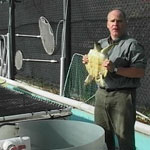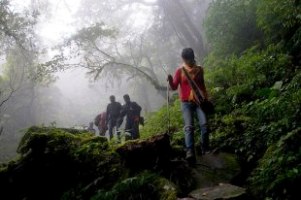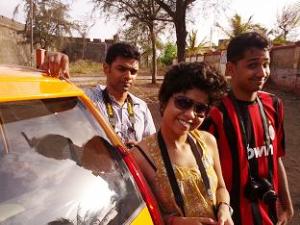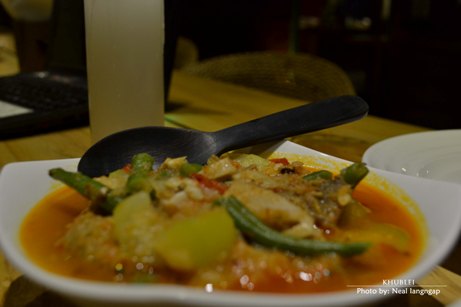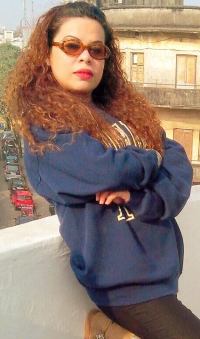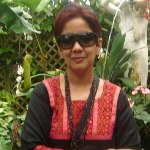Is fiction a historical or is it embedded in personal histories? Is there anything such as the historical novel? Does it elude a stereotype, a ' definition ' thereby meaning that historical facts must colour such fiction, or is it a nuance of fact and fiction? How do fact and fiction coexist in such novels?
Fable of the region
PETER W INGTY's book is a interesting exposition of certain historical truths writes ANANYA S GUHA

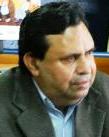
Ananya.S. Guha25 Posts
used to work with the Indira Gandhi National Open University, Shillong (Meghalaya) as an Academic Administrator. He has over 30 years of teaching and administrative experience. He has six collections of poetry and his forms have been published world wide. Some of his poems are due to appear soon in an Anthology of Indian Poetry in English to be published by Harper Collins.
Sunset Years
ANANYA S GUHA sums up the discussion on “Old Age Homes” at the recently held Shillong CALM Festival 2013
Sun, 19 May 2013The Calm of the CALM Festival
Picturesque Shillong gears up to celebrate creativity in the arts, music and literature writes Ananya S Guha
Mon, 22 Apr 2013Fiction Online
Ananya S Guha writes about the eFiction Magazine, a literary online journal which blends tradition with modernity
Mon, 25 Mar 2013Peace in Violence
Ananya S. Guha analyses the nuances of Northeast Indian Poetry
Tue, 28 Feb 2012All for Land
The struggle for land seems to be the crux of all conflict in the region, writes Ananya S Guha
Wed, 01 Aug 2012One Sohra Summer
Iadalang Pyngrope's book is a delightful blend of history and fiction writes ANANYA S GUHA
Tue, 20 May 2014Poetry of Darius Cooper
ANANYA S GUHA traverses multiplicity of worlds in the poems of Darius Cooper
Wed, 07 May 2014Mosaic
Iadalang Pyngrope's poems are experiential totality writes ANANYA S GUHA
Mon, 10 Mar 2014Fable of the region
PETER W INGTY's book is a interesting exposition of certain historical truths writes ANANYA S GUHA
Fri, 17 Jan 2014Tea Motif
NINA HARKNESS's novel straddles three decades in tea estates writes ANANYA S GUHA
Thu, 09 Jan 2014Honour for Temsula Ao
ANANYA S GUHA chats with Sahitya Akademi award winning writer TEMSULA AO
Sun, 22 Dec 2013Media Matters
ANANYA S GUHA ponders over the role of media in India
Mon, 14 Jul 2014Rewriting history
ANANYA S GUHA looks at the alienation question of Northeast India
Tue, 03 Jun 2014Reflections and dreams
ANANYA S GUHA urges to give free fictive imagination to one's dreams
Sat, 29 Mar 2014Christmas and Me
ANANYA S GUHA gives a flavour of Christmas in Shillong
Sun, 22 Dec 2013Paths and Stones
ANANYA S GUHA tries to sing a song of stones
Wed, 24 Jul 2013A poem happens
ANANYA S GUHA on the birth of a poem
Thu, 13 Jun 2013Fractured Mindset
Northeast India: Where does alienation stem from? The sub nationalism or nationalism that was at stake through the tortured histories of some of the states of Northeast India is the crux. This matrix has been lucidly evoked by Sudeep Chakravarti's book Highway 39 Journeys through a Fractured Land. Ananya S Guha probes into the causes which perpetuates an alienated mindset in the dialectics of mainland and outland.
Sun, 01 Jul 2012Soccer in Shillong
ANANYA S GUHA reminisces over soccer-soaked Shillong days
Thu, 12 Jun 2014Independence Day and Me
ANANYA S GUHA recollects memories of Independence Day celebrations in Shillong
Tue, 13 Aug 2013A new thrust
The Thumb Print Conversations at the Shillong CALM Festival reiterated the need to obviate misconceptions of the region writes ANANYA S GUHA
Sun, 12 May 2013Storm in CALM
The countdown for Shillong CALM Festival 2013 begins writes ANANYA S GUHA
Fri, 03 May 2013Politics of Honesty
Even his worst adversaries admit that Tripura chief minister Manik Sarkar is an impeccably honest man, a rare breed among politicians today writes Ananya S Guha
Wed, 13 Mar 2013The Sardar we know
ANANYA S GUHA analyses the recent debate over Sardar Patel
Fri, 01 Nov 2013Liquid Ambience in Poetry
Mitali Chakravarty’s poems alternate between spirituality and the down to earth.
Sun, 28 Jul 2024











